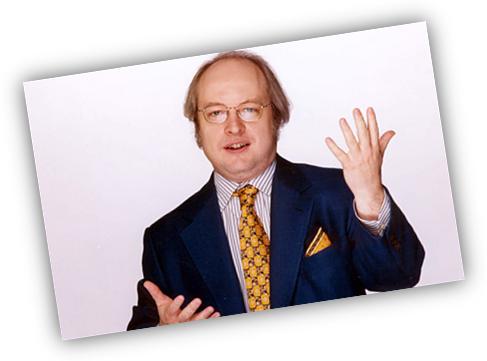Jacobs Media’s Tim Davis is truly a believer in “the experience.” And in today’s post, he digs deep to explain that the value of a great user interface falls short if the content isn’t there. As broadcasters work hard to craft digital platforms that complement their “mother ships,” this post is must reading. Hope you enjoy it.
 You’ve seen us use the term “CX” in this blog often before. We use it as a catch-all term to describe the “customer experience.” It’s all about how good a job you do fulfilling your customer’s wish list. It’s an amalgamation of UI (user interface) and UX (user experience) – which can be at odds with one another. CX is where the two live in harmony.
You’ve seen us use the term “CX” in this blog often before. We use it as a catch-all term to describe the “customer experience.” It’s all about how good a job you do fulfilling your customer’s wish list. It’s an amalgamation of UI (user interface) and UX (user experience) – which can be at odds with one another. CX is where the two live in harmony.
In the digital space, there’s a truism that says: “If it works, do it more. If doesn’t work, stop doing it.”
And this is easily done, because online we live with real-time analytics that measure what your users are doing. But, these numbers won’t always tell you why they left, nor will it tell you why more people aren’t engaging with you. But usage metrics do paint a solid picture of consumer behavior and reactions – unlike what broadcasters are accustomed to in ratings reports.
Jakob Nielsen (picture below) is considered one of the fathers of usability and his articles are always interesting. If you don’t subscribe to his emails, give it some thought. They aren’t overly frequent and they are always thought-provoking.
 A recent article deals with the much publicized Apple Maps snafu. As Nielsen notes:
A recent article deals with the much publicized Apple Maps snafu. As Nielsen notes:
“The uproar over Apple Maps is a great example of the difference between user interface design (UI) and user experience (UX). The Maps app has a very nice UI. The designers did a good job. But the UX fails because of poor data quality and poor integration of the data sources.”
And that speaks volumes about the concept of content versus delivery. Just because you have a pretty website, a full-featured mobile app, or a well-administered social media page doesn’t mean your content follows suit.
As Fred has mentioned in this blog, the fact that radio stations provide a stream isn’t good enough. It’s got to be a high-quality stream that not only competes with what’s available over the FM airwaves, but has to hold its own against high-fidelity streams like Pandora, Spotify & Rhapsody. Building the best player or the coolest skin might create a good UI, but if the stream is poor, then the UX fails and your CX drops.
Web pages are where the wheels can really come off. Even with high-end Content Management Systems (CMS) in place, all manner of automatic feeds available, and the various automated aspects at your fingertips, when was the last time you checked out how meaningful and relevant your website content is to your loyal listeners? Even if you’ve got a UI that allows for elegant and easy sign-up to your email database, have you written compelling content and copy that gives consumers a clear sense of meaningful benefits for signing up in the first place?
Nielsen has a way of boiling it down, and this takeaway resonated with me (the italics are mine):
“Performance and satisfaction are different usability metrics, so you should consider both in the design process and measure both if you conduct quantitative usability studies.”
Just because they can easily find your stream link or your email sign-up form, it doesn’t mean you’ve inspired them – or rewarded them – for following it. You may get lots of clicks to the stream, but how long are they listening? Are they sharing your content socially because it’s so compelling and engaging?
Remember, CX isn’t a single value – it’s the sum total of what you are creating – from design, to execution to implementation across your various channels.
Put yourself in your customer’s shoes. Experience your content and your UI as they do.
That’s the road to a great CX.
- What To Do If Your Radio Station Goes Through A Midlife Crisis - April 25, 2025
- A 2020 Lesson?It Could All Be Gone In A Flash - April 24, 2025
- How AI Can Give Radio Personalities More…PERSONALITY - April 23, 2025




It seems like a lot of stations don’t really care about their streams and that having one just seems to be a burden, since they don’t seem to care about the CX — it’s not just making sure there are takeaways that can be shared, it’s also making sure that it’s running as cleanly and that all aspects receive as much attention as the over-the-air signal because not doing so has a negative impact on listeners. I’ve been streaming major-market radio stations, and while I understand that there are restrictions based on certain AFTRA regulations, but I keep hearing the same bad commercials over and over during each stopset to the point where my wife made fun of them one morning. Additionally, I heard spots on one station’s stream for a major concert four or five days after the concert happened, and one week, the NBC Monday night lineup was apparently so awesome that they were still advertising it on Tuesday morning.
I realize that streams can be an afterthought when people are stretched thin trying to make their FM station (or, in some cases, more than one station) running the best they can, but with even a media mainstay like Newsweek moving solely to the Internet and dropping their traditional print outlet, radio can’t just stick its head in the sand and say “radio will always be there and people will listen to us because everyone has a radio in their car.” Trends increasingly suggest – as well as the research Jacobs Media has done – that more and more people are using the Internet to listen to music and radio, so why are stations giving listeners a reason to turn off their streams simply by not paying attention to them? Radio is no longer just a transmitter, it’s a media portal – and that means that there are several points of origin by which people can receive the programming, including Internet streams.
Keith, thanks for the thoughtful comments. From the perspective of someone charged with keeping up with a lot of radio stations, your streaming experiences go the heart of the CX problem. Radio needs to get serious about its streams. It’s no longer enough to just provide one. The customer experience is as important as the content. Thanks again.